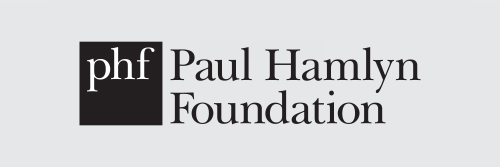LOOK Climate Lab 2022
13 January - 20 March 2022
VIEW THE VIRTUAL REALITY LAB HERE
What are the images that we think of when we think of climate change, and what is our social responsibility when it comes to reshaping this visual narrative?
To understand how we can better understand and become more actively involved in making positive change to lower carbon emissions and live more healthy and connected lives, we invited communities and partners to take over the gallery, to use it as a lab space, to show work in progress and talk through ideas.
The labs share the process of going from an idea to a better outcome, and encourage living, working and producing in sustainable, responsible ways. They reflect the importance of visual culture within activism, its ability to make difficult or abstract ideas accessible and place local communities within the international climate movement. In turn, we hope that this encourages our audiences to ask questions, make links between the overwhelming idea of climate change and how people are advocate for change, improve their well-being and engage others towards a better future.
Image: Dwarzack, Day 4, from the series Wata Na Life. Ngadi Smart, 2021
Introduction: 13 January – 23 January
The Labs each explore one of five themes: energy, materials, transport, nature, and food. Opening with a series of research projects exploring ecology and climate change in partnership with the Visual Studies Journal. Each researcher is working with communities to inform international research through the creativity and thoughts of local people. The projects range from school children and gallery visitors using Minecraft as a platform for creating more ideal environments, to communities building and sharing visual archives that evoke ‘memories’ of our use of fossil fuels, to revealing and understanding industrialisation along the Liverpool docks through newly created drone footage.
This takes place alongside our exhibition in partnership with WaterAid and British Journal of Photography. This exhibition, on display for the duration of the lab, features new commissions by Calvin Chow, Marisol Mendez & Monty Kaplan, and Ngadi Smart. The projects look at who is affected first, worst, and most often by climate change and demonstrates the power of visual culture as a way of presenting these challenges.
Energy: 26 January – 6 February
Steve McCoy and Stephanie Wynne lead focus on our domestic energy use in collaboration with the University of Salford Art Collection and Energy House (a research facility on retrofitting typical northern terraced houses). Highlighting the ‘heat or eat’ dilemma many face, the images, data, and interactive elements offer suggestions and guidance on how we can make small, everyday changes to make our houses more energy efficient.
There are more learning opportunities in the form of Sussex University’s new Liberal Arts degree. Their weekly Arts & Ecology classes will be streamed into the gallery inviting all to contribute via live discussion.
The photographic platform Then There Was Us will feature selected work from an environment-based open call on a new, interactive website encouraging users to respond to questions on the climate – the platform will be on display in the gallery for the duration of the programme.
Materials and Transport: 9 February – 20 February
The materials and transport section features hands-on workshops on repairing and upcycling, champions healthier ways to travel, explores wellbeing and weeds, and gives space to discuss climate anxieties. Michelle Pratt unveils research on agrotextiles and recycled collages, tapestries and fabrics made from waste materials while Teresa Hardy’s work on circular fashion takes us garment production stages, and Dawn Giles (from Tales of Care and Repair) leads a clothing repair and enhancement workshop. There is also the opportunity to learn more about micro plastics, their impact and involvement in the food chain through the temporary exhibition by Sam Wallis. Growing Sudley introduce us to the uses of weeds and wildflowers through workshops outlining their health and wellbeing benefits. Online and in gallery Climate Cafes will give more space for sharing thoughts, feelings, and concerns on the climate. Throughout this, Liverpool’s cooperative bicycle scheme Peloton will be temporarily taking over the gallery and running bicycle repairs as well as going on organised evening rides from the gallery. Also come in and meet Mersey Green Map an initiative to champion sustainable business.
Nature: 23 February – 6 March
Nature as a theme is wide reaching and this lab investigates environment as the world around us, as well as humans, non-human animals, and plants and wildlife. Moving image projects introduce topics from elements, such as water, to the pollination process, aiming to make ideas clear and relevant. There is also workshops on seeds and rewilding, by Scouse Flowerhouse, and (re)connecting people to natural spaces, with contributions from community partners. There will also be theatre productions and writing workshops and a mini safari for young audiences, giving them the freedom to stretch their imaginations and imagine other ways of nature shaping itself, and being shaped by human activity.
Food: 9 March – 20 March
The relationship between mass/global food production and the climate crisis is now well known. The final weeks of the Lab give us a rounded view of how we can get involved with growing food and understanding the importance of biodiversity. This covers activities including seed sowing, growing and cooking workshops. There will also be a temporary exhibition by Hellen Songa featuring portraits introducing members of Liverpool Community Food Growers Network with short texts explaining their involvement and interest in growing food, and sharing insights into the broad benefits of gardening, growing, and volunteering.
VIEW THE VIRTUAL REALITY LAB HERE
What are the images that we think of when we think of climate change, and what is our social responsibility when it comes to reshaping this visual narrative?
To understand how we can better understand and become more actively involved in making positive change to lower carbon emissions and live more healthy and connected lives, we invited communities and partners to take over the gallery, to use it as a lab space, to show work in progress and talk through ideas.
The labs share the process of going from an idea to a better outcome, and encourage living, working and producing in sustainable, responsible ways. They reflect the importance of visual culture within activism, its ability to make difficult or abstract ideas accessible and place local communities within the international climate movement. In turn, we hope that this encourages our audiences to ask questions, make links between the overwhelming idea of climate change and how people are advocate for change, improve their well-being and engage others towards a better future.
Image: Dwarzack, Day 4, from the series Wata Na Life. Ngadi Smart, 2021
Introduction: 13 January – 23 January
The Labs each explore one of five themes: energy, materials, transport, nature, and food. Opening with a series of research projects exploring ecology and climate change in partnership with the Visual Studies Journal. Each researcher is working with communities to inform international research through the creativity and thoughts of local people. The projects range from school children and gallery visitors using Minecraft as a platform for creating more ideal environments, to communities building and sharing visual archives that evoke ‘memories’ of our use of fossil fuels, to revealing and understanding industrialisation along the Liverpool docks through newly created drone footage.
This takes place alongside our exhibition in partnership with WaterAid and British Journal of Photography. This exhibition, on display for the duration of the lab, features new commissions by Calvin Chow, Marisol Mendez & Monty Kaplan, and Ngadi Smart. The projects look at who is affected first, worst, and most often by climate change and demonstrates the power of visual culture as a way of presenting these challenges.
Energy: 26 January – 6 February
Steve McCoy and Stephanie Wynne lead focus on our domestic energy use in collaboration with the University of Salford Art Collection and Energy House (a research facility on retrofitting typical northern terraced houses). Highlighting the ‘heat or eat’ dilemma many face, the images, data, and interactive elements offer suggestions and guidance on how we can make small, everyday changes to make our houses more energy efficient.
There are more learning opportunities in the form of Sussex University’s new Liberal Arts degree. Their weekly Arts & Ecology classes will be streamed into the gallery inviting all to contribute via live discussion.
The photographic platform Then There Was Us will feature selected work from an environment-based open call on a new, interactive website encouraging users to respond to questions on the climate – the platform will be on display in the gallery for the duration of the programme.
Materials and Transport: 9 February – 20 February
The materials and transport section features hands-on workshops on repairing and upcycling, champions healthier ways to travel, explores wellbeing and weeds, and gives space to discuss climate anxieties. Michelle Pratt unveils research on agrotextiles and recycled collages, tapestries and fabrics made from waste materials while Teresa Hardy’s work on circular fashion takes us garment production stages, and Dawn Giles (from Tales of Care and Repair) leads a clothing repair and enhancement workshop. There is also the opportunity to learn more about micro plastics, their impact and involvement in the food chain through the temporary exhibition by Sam Wallis. Growing Sudley introduce us to the uses of weeds and wildflowers through workshops outlining their health and wellbeing benefits. Online and in gallery Climate Cafes will give more space for sharing thoughts, feelings, and concerns on the climate. Throughout this, Liverpool’s cooperative bicycle scheme Peloton will be temporarily taking over the gallery and running bicycle repairs as well as going on organised evening rides from the gallery. Also come in and meet Mersey Green Map an initiative to champion sustainable business.
Nature: 23 February – 6 March
Nature as a theme is wide reaching and this lab investigates environment as the world around us, as well as humans, non-human animals, and plants and wildlife. Moving image projects introduce topics from elements, such as water, to the pollination process, aiming to make ideas clear and relevant. There is also workshops on seeds and rewilding, by Scouse Flowerhouse, and (re)connecting people to natural spaces, with contributions from community partners. There will also be theatre productions and writing workshops and a mini safari for young audiences, giving them the freedom to stretch their imaginations and imagine other ways of nature shaping itself, and being shaped by human activity.
Food: 9 March – 20 March
The relationship between mass/global food production and the climate crisis is now well known. The final weeks of the Lab give us a rounded view of how we can get involved with growing food and understanding the importance of biodiversity. This covers activities including seed sowing, growing and cooking workshops. There will also be a temporary exhibition by Hellen Songa featuring portraits introducing members of Liverpool Community Food Growers Network with short texts explaining their involvement and interest in growing food, and sharing insights into the broad benefits of gardening, growing, and volunteering.

